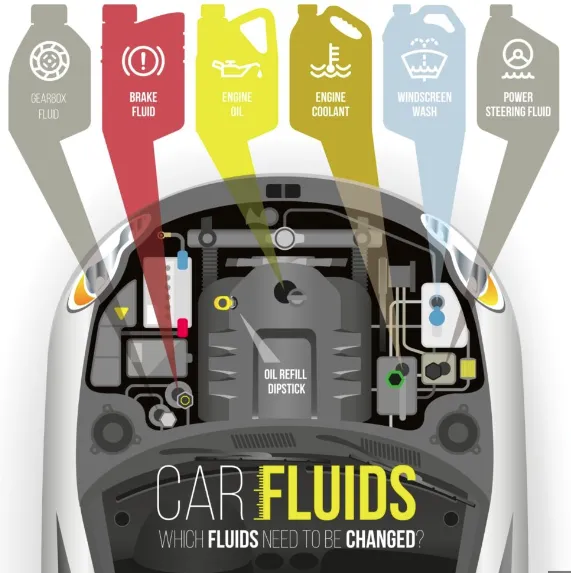Latest News

Fluid Maintenance 101: Beyond Oil Changes
When it comes to vehicle maintenance, most people think of oil changes as the primary fluid-related task. While regular oil changes are indeed crucial for the health of your engine, they are just one part of a broader spectrum of fluid maintenance. Your vehicle relies on several essential fluids to operate smoothly and safely. In this blog, we'll expand beyond oil changes to discuss other vital fluids like transmission fluid, coolant, and brake fluid, and why they require regular attention.
Transmission Fluid
Your vehicle's transmission is responsible for transferring power from the engine to the wheels. Transmission fluid plays a critical role in ensuring this process runs smoothly. Here's why transmission fluid maintenance is essential:
a. Lubrication: Transmission fluid lubricates the moving parts within the transmission, reducing friction and preventing excessive wear and tear.
b. Cooling: It helps in dissipating heat generated during transmission operation, preventing overheating and component damage.
c. Cleaning: Transmission fluid contains detergents that keep the transmission clean by removing contaminants and debris.
Regular maintenance involves checking the fluid level and condition and performing transmission fluid changes as recommended by your vehicle's manufacturer. Neglecting transmission fluid can lead to expensive repairs or even transmission failure.
Coolant
Your vehicle's engine generates a significant amount of heat during operation. Coolant, also known as antifreeze, is responsible for regulating the engine's temperature. Here's why coolant maintenance is crucial:
a. Temperature Regulation: Coolant circulates through the engine, absorbing and dissipating excess heat to prevent overheating.
b. Corrosion Prevention: Coolant contains additives that protect the engine's components from corrosion and scale buildup.
c. Freeze Protection: In colder climates, coolant prevents the engine block and radiator from freezing, which can lead to severe damage.
Maintaining proper coolant levels and ensuring a healthy mixture of water and coolant is essential. Neglecting coolant maintenance can result in engine overheating, coolant leaks, and engine damage.
Brake Fluid
Your vehicle's braking system relies on hydraulic pressure to bring your vehicle to a stop. Brake fluid plays a critical role in transmitting this pressure from the brake pedal to the brake components. Here's why brake fluid maintenance is vital:
a. Hydraulic Transfer: Brake fluid transfers force from the brake pedal to the brake calipers or wheel cylinders, allowing the brakes to engage.
b. Boiling Point: Brake fluid has a high boiling point, preventing it from vaporizing under heavy braking, which could lead to brake failure.
c. Corrosion Prevention: It helps protect the brake system's metal components from corrosion.
Regular brake fluid inspections and changes, according to your vehicle's manufacturer recommendations, are essential to maintain brake system performance and safety. Neglecting brake fluid can result in reduced braking effectiveness and increased stopping distances.
Conclusion
Fluid maintenance is a critical aspect of keeping your vehicle running smoothly and safely. While oil changes are important, they are just one part of the equation. Regular attention to fluids like transmission fluid, coolant, and brake fluid can help prevent costly repairs, extend the life of your vehicle, and ensure your safety on the road.
Make it a habit to check and maintain these fluids as recommended in your vehicle's owner's manual. If you're unsure about the maintenance schedule or how to perform these tasks, consult your trusted mechanic or dealership. By staying on top of your vehicle's fluid maintenance, you'll not only save money in the long run but also enjoy a more reliable and efficient driving experience.




